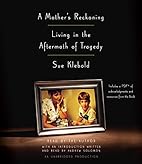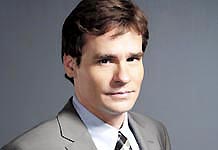A Mother's Reckoning: Living in the Aftermath of Tragedy by Sue Klebold (11 h 25 min)
Sue Klebold writes a very difficult book, putting herself and her family under the microscope and open to much judgement. Klebold is the mother of Dylan Klebold, half of the duo who perpetrated the Columbine killings.
I was feeling rather judgey at the beginning of the book, because until she explains more of what happens, nearly everyone's reaction, including mine, is to wonder how this could happen in her house without her knowing. But I should have realized it is possible: ultimately, no one ever really knows any other person. You can never say 'He or she would never do that," because no one can ever know. This book really solidifies this idea.
Part of the book details Dylan's life growing up which seemed pretty normal. Nothing stands out and after the fact, in any family, things may have happened that you could look at. Klebold is brutally honest, but who knows what got left out?
Part of the book deals with the aftermath, as they were grieving their son's death, but were not permitted to be a part of the community's losses. Easy to see both sides of that situation. I was struck by the outpouring of support from across the country the Klebolds got and I was impressed with the people who recognized their loss. Very generous in the wake of such horror.
There seems to be consensus that Dylan and Eric Harris were suffering from different mental issues. Dylan was suicidal depressive while Eric was homicidal psychopath - bad mix together. Klebold missed that Dylan was depressed. I found this very timely, as a previous student of mine had committed suicide just the week before I read this book. Nobody realized he was depressed. I appreciated the background and research into suicide that Klebold provided in the book.
The role the school and the school culture played was significant. As teachers, we get to see a different side to students that parents may not, and therefore we can play a role in helping and preventing tragedies. She includes some interviews with people who were not surprised that someone at Columbine snapped which forces a discussion of school culture.
This is a difficult book to read. Klebold toes a fine line between helping to examine what led to her son murdering people and the child she thought she knew. Accepting some blame but not knowing what she could have changed. Dealing with her own grief and guilt. Hopefully it contributes to the mental health discussion.
Wednesday, May 24, 2017
BOOK: A Mother's Reckoning by Sue Klebold
2017-05-24T08:00:00-04:00
raidergirl3
Subscribe to:
Post Comments (Atom)







